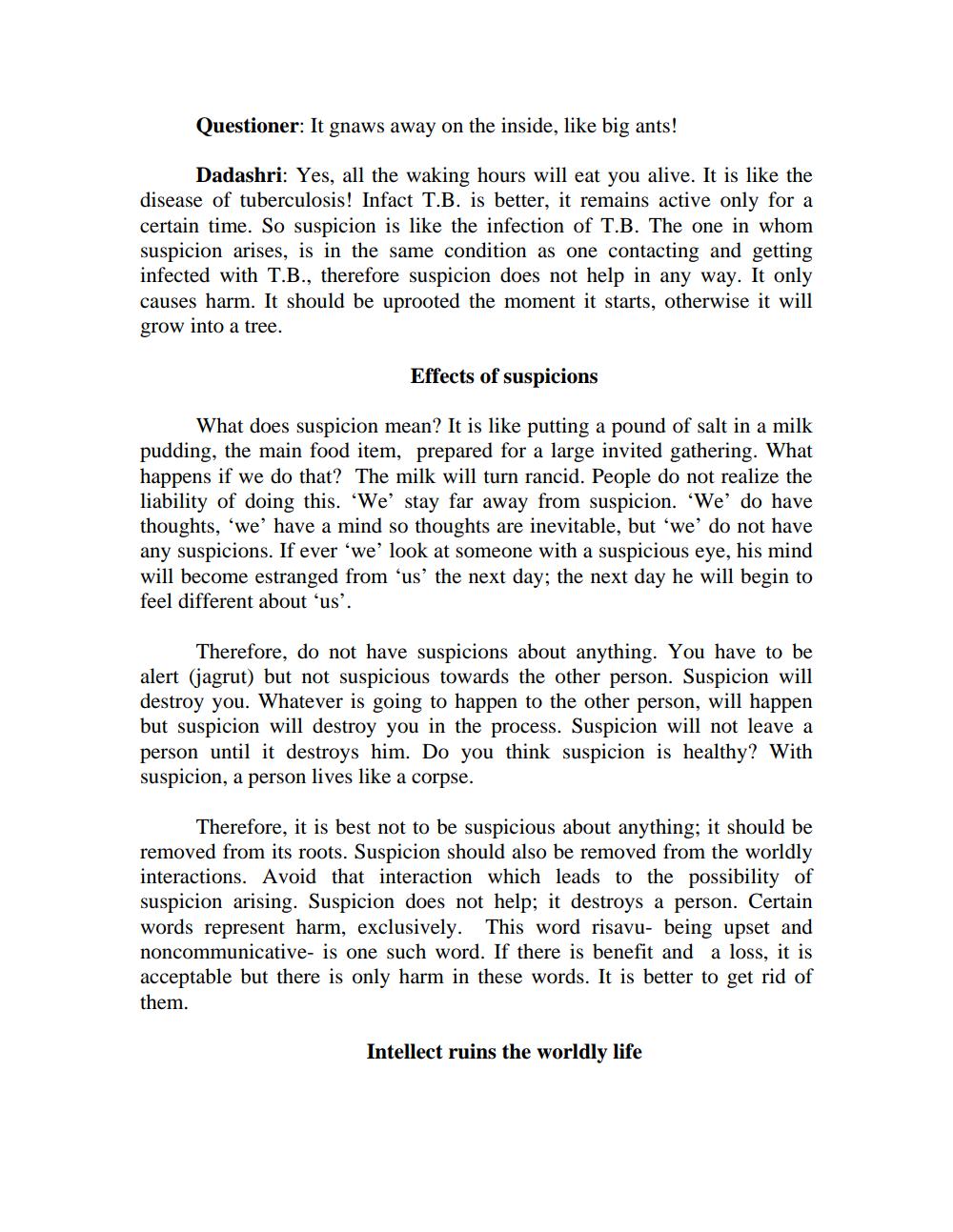________________
Questioner: It gnaws away on the inside, like big ants!
Dadashri: Yes, all the waking hours will eat you alive. It is like the disease of tuberculosis! Infact T.B. is better, it remains active only for a certain time. So suspicion is like the infection of T.B. The one in whom suspicion arises, is in the same condition as one contacting and getting infected with T.B., therefore suspicion does not help in any way. It only causes harm. It should be uprooted the moment it starts, otherwise it will grow into a tree.
Effects of suspicions
What does suspicion mean? It is like putting a pound of salt in a milk pudding, the main food item, prepared for a large invited gathering. What happens if we do that? The milk will turn rancid. People do not realize the liability of doing this. We stay far away from suspicion. 'We do have thoughts, 'we' have a mind so thoughts are inevitable, but 'we' do not have any suspicions. If ever 'we' look at someone with a suspicious eye, his mind will become estranged from 'us' the next day; the next day he will begin to feel different about 'us'.
Therefore, do not have suspicions about anything. You have to be alert (jagrut) but not suspicious towards the other person. Suspicion will destroy you. Whatever is going to happen to the other person, will happen but suspicion will destroy you in the process. Suspicion will not leave a person until it destroys him. Do you think suspicion is healthy? With suspicion, a person lives like a corpse.
Therefore, it is best not to be suspicious about anything; it should be removed from its roots. Suspicion should also be removed from the worldly interactions. Avoid that interaction which leads to the possibility of suspicion arising. Suspicion does not help; it destroys a person. Certain words represent harm, exclusively. This word risavu- being upset and noncommunicative- is one such word. If there is benefit and a loss, it is acceptable but there is only harm in these words. It is better to get rid of them.
Intellect ruins the worldly life




